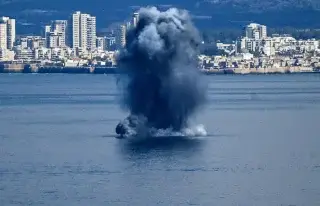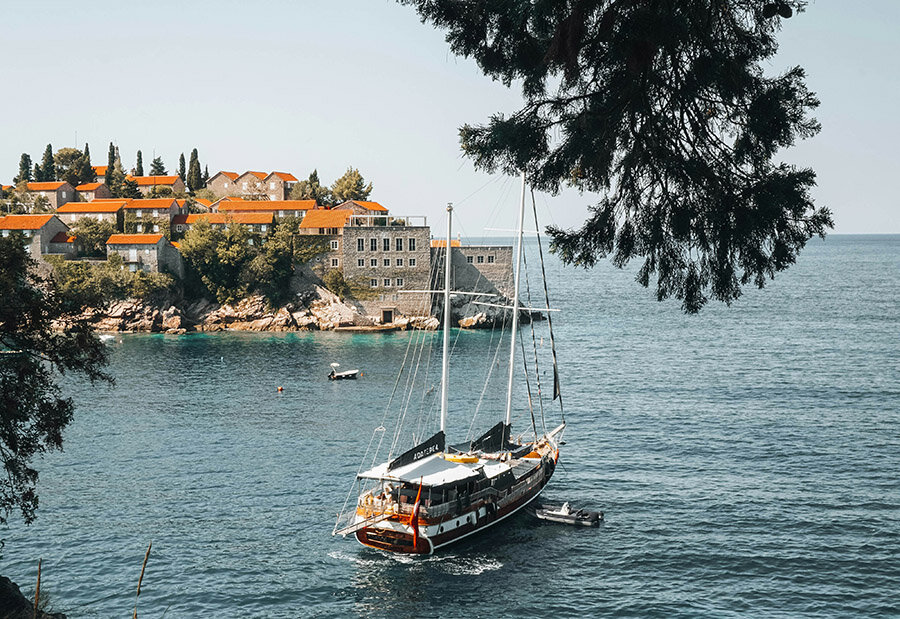read also
 Attack on Dubai, February 28, 2026: Timeline of Events and Impact on the Real Estate Market (Updating)
Attack on Dubai, February 28, 2026: Timeline of Events and Impact on the Real Estate Market (Updating)
 Russians in Israel Join Forces to Leave: War in the Middle East
Russians in Israel Join Forces to Leave: War in the Middle East
 War in the Middle East: Risks for Tourists
War in the Middle East: Risks for Tourists
 Middle East Airspace Faces Flight Disruptions
Middle East Airspace Faces Flight Disruptions
 Unexpected Destination Tops 2026 Travel Trends
Unexpected Destination Tops 2026 Travel Trends
 Norway House Prices Hold Steady
Norway House Prices Hold Steady
Вusiness / Real Estate / Investments / Analytics / News / Reviews / Montenegro / Real Estate Montenegro 10.07.2025
Montenegro Tightens Rules for Real Estate Agents: No Work Without a License

Photo: Unsplash
The Parliament of Montenegro is considering a draft law that, for the first time, introduces mandatory licensing for real estate agents and establishes strict rules for their operations, reports Investitor.me. The initiative aims to bring order to the real estate market, enhance protection for buyers and sellers, and combat illegal brokerage and the shadow economy.
The initiative for developing the law came from members of the Real Estate Trade Group of the Chamber of Commerce and the Association of Real Estate Agencies of Montenegro. Their years-long effort to systematize the market found support at the Ministry of Economic Development, which recognized the need to regulate the real estate sector and establish rules aligned with European standards. Veselin Dragaš, president of the Association of Real Estate Agencies of Montenegro, noted that the draft law was prepared based on European practices and industry expertise, and its development took about five years.
The draft law provides for the creation of an open register of brokers, mandatory professional examinations for real estate agents, liability insurance for potential client damages, and the maintenance of an escrow account for handling transactions between buyers and sellers. Agencies will be required to operate from equipped offices, sign written brokerage contracts, keep records of transactions, and only post advertisements indicating their registration number and license. These measures should improve transaction transparency, enable clients to verify agency legitimacy, and reduce fraud.
The real estate market in Montenegro remains challenging: the total value of transactions in 2024 exceeded half a billion euros, with €455 million invested by foreign buyers. According to Montenegro Business, in the first quarter of 2025, acquisitions by foreign investors increased by 21% compared to the same period in 2024, reaching €113.5 million. Since 2019, this figure has surpassed €2 billion. Foreigners own around 50,000 real estate objects and 94,000 land plots, mainly in coastal municipalities and northern regions such as Pljevlja and Nikšić.
The average price of new housing in the first quarter of 2025 was €2,158 per square meter, 23% higher than the previous year. In Podgorica, prices rose by 10.7% to €2,066 per sq. m, while on the coast they jumped by 25% to €2,328. Over five years, the price of new developments in Montenegro has increased by 130%. In elite complexes like Porto Montenegro, Luštica Bay, and Portonovi, prices start at €9,000–13,000 per square meter.
Since the pandemic, the average rent for one-bedroom apartments in Montenegro has grown from €250 to €430 per month (+73%). This makes rental housing increasingly unaffordable for local residents with modest incomes, exacerbating social tensions. Meanwhile, construction activity has slowed down — only 30 permits were issued between January and March. Analysts attribute this to changes in economic conditions, legislation, and the reinstatement of the construction permit system (replacing the previous notification-based model). Developers are acting cautiously, preferring to sell existing assets before launching new projects. A significant problem remains the large volume of vacant housing: over 70,000 apartments — about 25% of the entire housing stock — are unused.
Experts point out that the market operates practically without oversight, with many intermediaries working unregistered, causing significant budget losses each year. On specialized websites, social networks, and mobile apps, individuals post hundreds of listings without permits or licenses, allowing unlicensed brokers to pose as official agencies. This creates fertile ground for abuse, and the lack of a register of licensed agents makes it impossible for clients to distinguish legal brokers from fraudsters.
Veselin Dragaš emphasizes that the absence of legal regulation makes it extremely difficult to comply with the Law on the Prevention of Money Laundering and Terrorist Financing, which requires thorough scrutiny of real estate transactions. He believes the adoption of the law will increase protection for buyers and sellers, eliminate illegal brokerage, and reduce the shadow economy. It should also boost budget revenues and create conditions for fair competition in the real estate market.
It is expected that bringing order to this sector will move Montenegro closer to European standards and increase trust from foreign investors. However, many analysts forecast a market adjustment as investors adapt to changing demand and legal frameworks.


